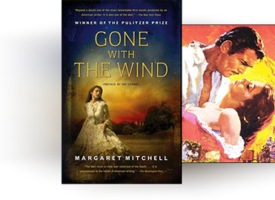Breaking in
When I wanted to break into newspaper work as a stringer or part-time journalist to supplement my income, I applied to a big city paper—The Boston Globe. In a brief interview with its editorial manager, he shared some wisdom which should interest any general writer whose mind trends in the same direction.
 He said: “The only way to get on to the force of a big newspaper is to ‘burglarize’—force your way in. The conditions are such as to prevent our taking on a beginner who is ‘willing to do anything.’ We must have a trained mind from the very beginning. For this reason we can use the services of journalists who come to us from other papers; and who show evidence, either in their past work or by letters from former employers, that they can fill the bill—do the work they profess to do. We can’t take the risks of inexperience.”
He said: “The only way to get on to the force of a big newspaper is to ‘burglarize’—force your way in. The conditions are such as to prevent our taking on a beginner who is ‘willing to do anything.’ We must have a trained mind from the very beginning. For this reason we can use the services of journalists who come to us from other papers; and who show evidence, either in their past work or by letters from former employers, that they can fill the bill—do the work they profess to do. We can’t take the risks of inexperience.”
Mr. Morgan, the editorial manager, asked me, “You have been a general contributor but have done no reporting I understand?”
“No,” I replied, “I do not like reporting, in its general sense. I would like to do special articles, illustrated.”
After a moment’s consideration Mr. Morgan said: “If you will suggest several subjects which you propose to write up I will look them over and give you an assignment, if any interests me … if the article is satisfactory, I will accept it for possible use in our weekly or Sunday edition.”
That ended my first interview to which I came with no letters of introduction and no “good word” behind me. I knew I could write special articles, and Mr. Morgan, alert in trying to secure good material, simply “gave me a chance.”
First assignment
I went home and thought up several subjects, six I believe, and submitted them for his approval. From this number, he selected two news pieces as relevant and timely. He turned them over to me as an “assignment”
to revise and improve upon. I had secured my objective—an opportunity to show what I could do.
Given this opportunity, the rest follows if a writer can do the right work. He stands or falls then and there. Let me suggest something: If you submit titles of proposed articles, you need to put them into comprehensive form. Write them out in a way that showcases what it is you propose to work up and present, in your finished article.
Preparing your work for the paper
My own memoranda took the form of complete head and sub-heads of each article that I proposed. In MS-Word, I typed in my articles and “balanced” them as to length of line and words, to create, as far as might be, the same structure the newspaper uses when they layout columns of the paper or when they create specific pages at the newspaper’s website.
If you pitch article ideas to the editorial director of a large newspaper with a promising skeleton of your idea, then his quick perception instantly clothes it with its attractive possibilities. Then if you meet those possibilities in your completed work—you have settled the problem of landing a writing gig with a big newspaper, as I have done.


